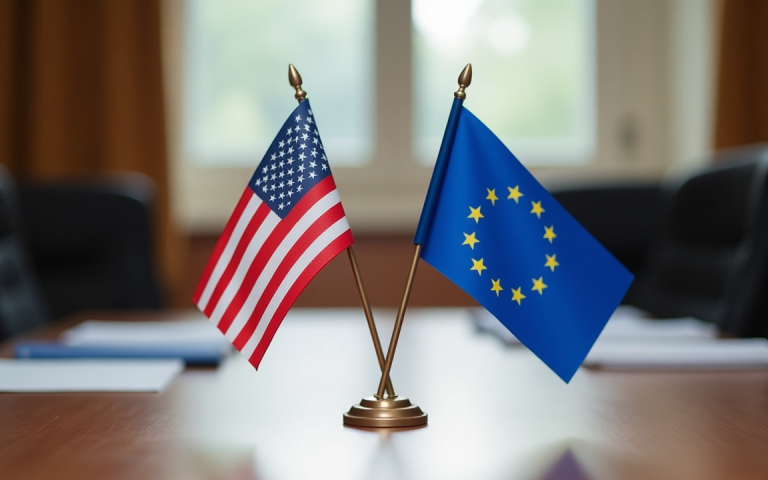Pharmaceutical companies are seeking clarification on tariffs imposed under the new US-EU trade agreement.
Analysts caution that sector-specific punitive levies could jeopardise the entire deal, according to a CNBC report.
Significant ambiguity surrounds the precise definitions and classifications of pharmaceutical goods within the framework of the trade truce finalised on Sunday.
This agreement introduces a 15% tariff on a range of goods imported from the European Union into the US.
Tariff ambiguity fuels concerns
The lack of clarity regarding pharmaceutical products is particularly problematic given the complexity and diversity of the industry, encompassing everything from bulk active pharmaceutical ingredients (APIs) to finished dosage forms, medical devices, and even research and development materials.
Industry experts and trade analysts are now grappling with how these new tariffs will be applied across the vast spectrum of pharmaceutical items.
Key questions arise concerning the categorisation of combination products (drugs and devices), biologics, and novel therapies.
This ambiguity could lead to differing interpretations by customs officials in both the EU and the US, potentially causing delays, disputes, and increased compliance costs for pharmaceutical companies operating across the Atlantic.
The immediate concern is the potential impact on supply chains, pricing, and ultimately, patient access to essential medicines, as companies navigate these newly imposed financial barriers.
Conflicting statements
During a news briefing, US President Donald Trump announced a “straight across” tariff on “automobiles and everything else,” while noting that pharma was “unrelated to this deal.”
European Commission President Ursula von der Leyen described the agreed levy as “all-inclusive,” suggesting that Europe would not be subject to an upcoming announcement regarding pharmaceutical tariffs.
Von der Leyen said Sunday:
We have 15% for pharmaceuticals. Whatever the decision later on is, of the president of the US, how to deal with pharmaceuticals in general globally, that’s on a different sheet of paper.
Earlier this month, Trump indicated that an announcement regarding tariffs on pharmaceutical imports into the US was imminent and could reach up to 200%.
This follows the administration’s “Section 232” investigation into the pharmaceutical sector, which assesses the impact of these imports on national security. The findings of this investigation are expected by August.
High stakes for European economy
Analysts indicated to CNBC that even a 15% pharma tariff would significantly impact European pharmaceutical companies and the broader economy of the bloc.
“The questions around pharma tariffs are highly material, given the volume of imports from the EU,” Wolfe Research analysts wrote in a note Monday.
In 2024, the EU’s exports of medicines and pharmaceutical products to the US reached approximately $120 billion, making it the EU’s largest export sector.
Reuters had reported earlier that analysts project 15% levies could increase annual industry costs by $13 billion to $19 billion.
However, a higher rate could, according to them, jeopardize the painstakingly negotiated agreement.
“Any surprise increases to the 15% ceiling on pharma tariffs would threaten the broader trade truce,” Eurasia Group analysts were quoted in the report.
Rabobank analysts warned that if disputes over sectoral tariffs do not derail the wider agreement, the impact on the European economy could be severe.
Meanwhile, firms are struggling amidst this uncertainty.
“We’ve been asking for exemptions from [tariffs] in the US, in the EU, but also in China. That’s something we have been pleading for,” Philips CEO Roy Jakobs told CNBC.
In the current deal that has been announced, that was not part of it, so we keep having that dialogue.
The post Why US-EU trade deal faces jeopardy over ambiguous pharmaceutical tariffs appeared first on Invezz

